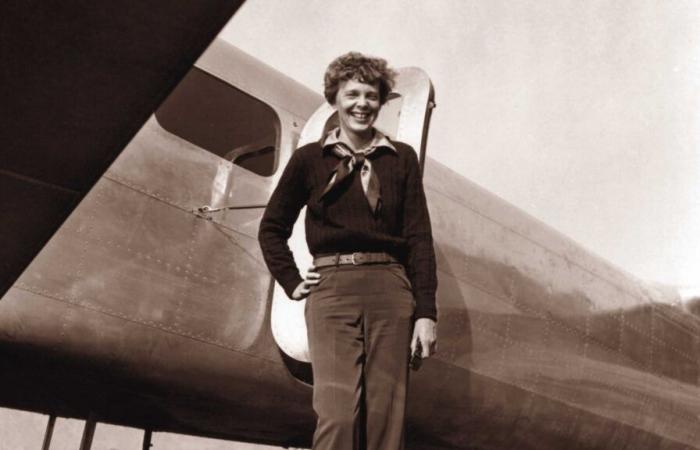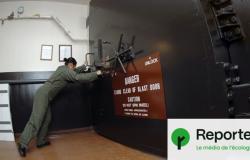In January 2024, explorers believed they recognized the remains of the plane in an image captured by an underwater robot in the Pacific. It was “a natural rock formation”, the Deep Sea Vision company finally announced.
They thought they had found the remains of American aviation pioneer Amelia Earhart's aircraft at the bottom of the Pacific Ocean, but Deep Sea Vision explorers announced that their image published in January ultimately showed only a crude “rock formation”.
Deep Sea Vision published at that time a blurry sonar image, captured by an underwater robot, which seemed to reveal the contours corresponding to the unique model of the aircraft of the aviator who disappeared almost a century ago.
“After 11 months, the wait is finally over and unfortunately our target was not Amelia's Electra 10E – just a natural rock formation,” the marine exploration company announced on its Instagram account.
An aviation mystery
With her navigator Fred Noonan, Amelia Earhart took off on May 20, 1937 from Oakland, California, to become the first woman to fly around the world, five years after being the first woman to cross the Atlantic solo.
But the two disappeared on July 2 after taking off from Lae, Papua New Guinea, on a grueling 4,000 km flight. They were supposed to refuel on Howland Island, but never got there.
This disappearance remains one of the most intriguing mysteries in the history of aviation, spawning dozens of books, films, and more or less far-fetched theories. The prevailing hypothesis holds that Amelia Earhart and Fred Noonan experienced a fuel shortage and abandoned their twin-engine Lockheed L-10 Electra near Howland Island.
Despite its failure, Deep Sea Vision announced that it would continue its research, extending “over nearly 20,000 km²”. “The intrigue continues with no evidence ever found of his disappearance,” the company writes.
“Let us know what you think – did she run out of fuel near Howland Island?” Deep Sea Vision further asks.






